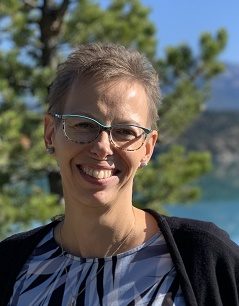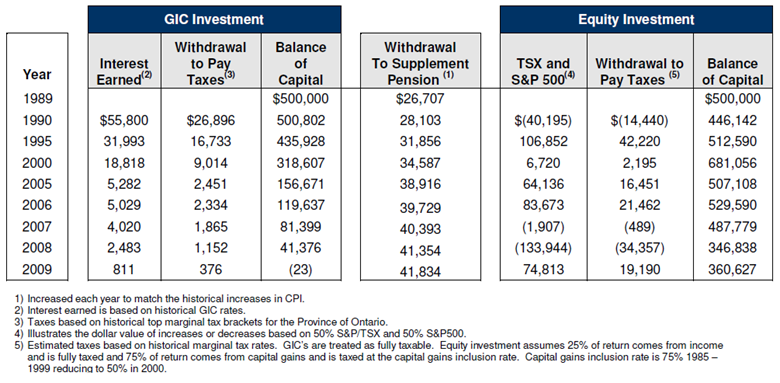
As the 2024 tax season approaches, it’s essential for Canadians to be aware of key dates to ensure a smooth and timely filing process. Here are some important deadlines to keep in mind.
-
RRSP Contribution Deadline
You have 60 days into the new year to contribute to your Registered Retirement Savings Plan (RRSP) for the prior tax year. For the 2024 tax year, this deadline is March 3, 2025.
RRSP contributions are one way to lower your current tax liability by deferring the tax on the contributions, and related growth from the corresponding investment, to a future tax year. This tax deferral is particularly beneficial if you anticipate to be in a lower tax bracket when you withdraw from your RRSP or Registered Retirement Income Fund (RRIF).
You can make these contributions to either your own RRSP or to a Spousal RRSP. Contributions to either account will impact your RRSP contribution room and your current personal tax liability. The use of the Spousal RRSP allows you to income split taxation on withdrawals, especially if you plan to withdraw prior to age 65.
-
Filing Deadline for Most Canadians
The deadline to file your tax return and pay any balance owing to the Canada Revenue Agency (CRA) is April 30, 2025 for most Canadians. Filing on time helps you avoid late-filing penalties and interest charges, especially if you have amounts owing.
Filing your tax return also helps to ensure that you receive any government benefits due to come to your way.
-
Self-Employed Individual Filing Deadline
If you or your spouse or common-law partner are self-employed, you have until June 15th of the following year to file your tax returns. For the 2024 tax year, you get a bonus day, June 16, 2025, since June 15 is a Sunday.
Keep in mind however that any balance owing must still be paid by April 30, 2025, to avoid interest charges.
-
Instalment Payments
If you had to pay more than $3,000* in taxation in either of the prior two calendar year filing periods AND you anticipate that your current tax year will also result in tax owing of more than $3,000*, you will be required to make quarterly instalment payments.
There are three options to calculate the amount per tax instalment needed, but remember that the first instalment for the current tax year is due March 15th, about 6 weeks prior to tax filing deadline. Therefore, it’s important to review your taxation with your accountant early to avoid interest charges and possible penalties.
Remaining installments are due June 15, September 15 and December 15, or the next business day following if it occurs on a Saturday, Sunday or public holiday recognized by the CRA.
*Calculated as the “Net Tax Owing” on your tax return. This amount is $1,800 for residents of Quebec.
-
FHSA Contributions
Though too late for the 2024 tax year, a contribution to a First Home Savings Account in the current tax year can also decrease your taxable income.
In addition to the current year tax savings, there is no tax applicable to an eligible withdrawal of your contributed amount or the growth of the investment. This is a great account registration to save for your first home for those that qualify.
-
Trust Income Tax Return (T3)
For trusts, the income tax return and payment are due within 90 days after the trust’s tax year-end. If you think you may be required to file a T3 in a bare trust situation, be sure to confer with your accountant as the penalties can be harsh.
Conclusion
Staying informed about these key tax dates can help you avoid penalties and ensure you receive any benefits or credits you are entitled to.
Having conversations early in the tax filing period with your financial advisor to review the impact of additional RRSP contributions can help mitigate your overall tax bill for the prior year. Understanding when an RRSP contribution makes sense is part of how we empower you to make smart financial decisions that align with your goals today and tomorrow. Contact us at 780-261-3098 or email (Roxanne@C3wealthadvisors.ca) to set up your next conversation.
Roxanne Arnal is a CFP®, former Optometrist, Professional Corporation President, and practice owner. Today she is on a mission to Empower You & Your Wealth with Clarity, Confidence & Control.
These articles are for information purposes only and are not a replacement for personal financial and tax planning. Individual circumstances and needs vary. Tax strategies should also be discussed with your tax accountant and lawyer. Errors and Omissions exempt.

ROXANNE ARNAL,
Optometrist and Certified Financial Planner
Roxanne Arnal graduated from UW School of Optometry in 1995 and is a past-president of the Alberta Association of Optometrists (AAO) and the Canadian Association of Optometry Students (CAOS). She subsequently built a thriving optometric practice in rural Alberta.
Roxanne took the decision in 2012 to leave optometry and become a financial planning professional. She now focuses on providing services to Optometrists with a plan to parlay her unique expertise to help optometric practices and their families across the country meet their goals through astute financial planning and decision making.
Roxanne splits EWO podcast hosting duties with Dr. Glen Chiasson.


















